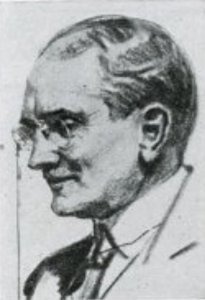
Photo info …
Credit: Harris & Ewing, Public domain, via Wikimedia CommonsView Source
(Apr. 21, 1856-Oct. 21, 1929). A native of Indianapolis, Merrill Moores was the grandson of , state treasurer and founder of . As a child, he was educated by his aunt, , at her private school. After attending both Butler and Willamette universities, Moores graduated from Yale University in 1878. In 1880, he graduated from the Central Law School of Indiana, was admitted to the bar, and commenced practice in Indianapolis.
From 1899 to 1906, Moores served as secretary of the Indiana State Bar Association; in 1907 and 1908, he served as its president. In 1908, Moores was also president of the Indianapolis Bar Association. From 1909 to 1921, he acted as Indiana commissioner for the National Conference on Uniform State Laws. Although Moores was associated with the law firm of Pickens, Moores, Davidson and Pickens prior to entering Congress, he practiced alone after his retirement from politics in 1925. At the time of his death, Moores was also serving as vice president of the American Systems and Audit Company.
From 1890 to 1894, Moores served as chairman of the Marion County Republican Committee and, from 1894 to 1903, he was the assistant attorney general of Indiana. In 1914, Moores was elected to the U.S. House of Representatives from Indiana’s 7th District, the first of five successive terms. While in Congress, Moores was a member of the House committee on foreign affairs, and, in 1919, he served as a member of the executive council of the Interparliamentary Union. In 1924, he lost his bid to run as the Republican candidate for the 7th District to candidate Ralph Updike in the primary election. Updike defeated him again in 1926.

Help improve this entry
Contribute information, offer corrections, suggest images.
You can also recommend new entries related to this topic.

